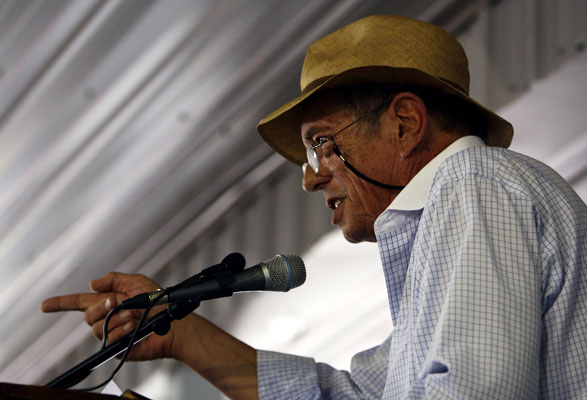Perennial gubernatorial candidate and local politician Gatewood Galbraith passed away on Wednesday, Jan. 4. Galbraith ran for the fifth time this year against Governor Steve Beshear and Senate president David Williams, earning 9% of the total votes cast in the election.
He held numerous positions in politics in his time, in addition to campaigning for governor; he also ran several other unsuccessful campaigns for Attorney General, Secretary of Agriculture, and the 5th District congressional seat.
Galbraith gained much popularity for his views on the legalization of marijuana. He drove a Mercedes-Benz station wagon that ran on hemp-oil and was deemed “the Hempmobile.” The drug was something he saw as a cheap cure for many ailments; he believed it cured his asthma, and that government resources were being wasted on enforcement of anti-drug laws.
Gailbraith’s sharp, clever wit and distinct turns of phrase caught the attention of many local media figures, giving him more coverage than would be expected for someone who lost seven different elections.
He would always re-introduce himself by saying, “If the people that beat me had done a better job, there would be no need for me to run again.”
Among his other views, Galbraith believed in freezing college tuition and creating charter schools. He strongly favored creating a $5,000 voucher for books and materials to be given to graduating seniors who planned on attending post-secondary education in the state of Kentucky.
“No food, no beer, no creature comforts,” Galbraith said. “Not one penny gets spent until that person actually presents themselves to the entity to begin their training.”
He was respected because of his colorful positions on civil liberties. Many local and state politicos have found themselves profoundly intrigued by Galbraith.
In a recent episode of KET’s Comment on Kentucky, host Ferrell Wellman agreed with this analysis of Galbraith’s policies: “He would say something that would make you roll your eyes, and then fifteen seconds later he’d say something and you’d go, ‘wait, that’s not a bad idea’ or ‘why aren’t we doing that?'”





